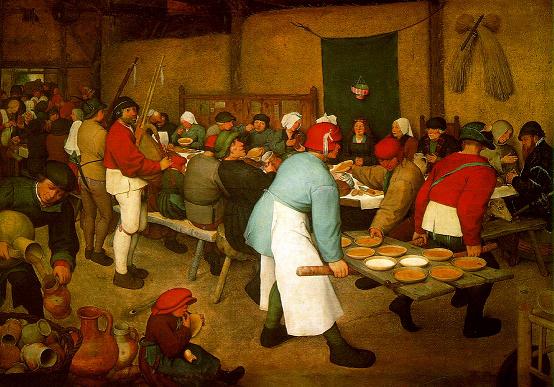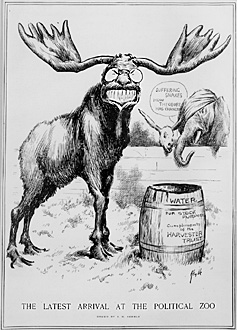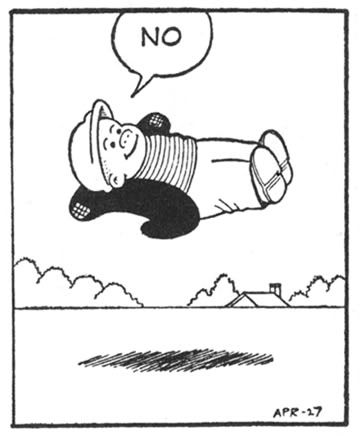
Mark Rothko (Latvian-American 1930's?)
I have been trying to explain this dream ever since I had it. Ideally, it would be told to Tracy Stanton, at his wonderful bar, The 700 Club, over a birch beer and a neat double Bushmill's. He would, as is his way, listen politely as I mix the facts of the dream with certain elastic bonuses, hidden possibilities and, yes Tracy, outright lies, as is my way. Then he would tell me I'm full of shit.
This dream came to me maybe five years ago. I'd thought back to my teenage love of Britpop and how to my liking, the annual Q Magazine Music Awards were always my favorites in that they seemed to always go to bands I loved. Perhaps the ambition to be a part of it--even if just in a dream, was seeded deep, and given that it (and my desire to be there) emerged in a dream concerning the end of all times I should say it was seeded as deeply as could anything short of the quietude of love be.
The setting was on an ampitheatric slope at sunset. The stage looked up the hill, which was crowned by the fading last light.
Arching over the seated hillside was a series of grand tree boughs, simulating a set of rafters and crosswalks, hung with fantastic, crystal chandeliers. It was the end of times and Q Magazine was sparing no expense. Along the branches were laughing parties in tuxedos and old platinum flapper gowns, drinking champagne from those shallow mezzaluna cocktail glasses I always loved. So much commotion went on above that depending on where one stood it could appear that a stormy, jubilant nightfall had already descended the hill.
This was the Q Music Awards for All Times.
Everyone was there. Every band or singer who ever did something great from The Kinks all the way down to Kula Shaker. There was a rough air of order as awards went out to Best Sad Song Ever: a Thunderboy/Tony Conrad fragmentation-mix of Roberta Flack's "The First Time Ever I Saw Your Face", which I didn't even know existed til that dream, and in truth it was colossally heartbreaking; Best American Country Music Song-Nashville Style-Ever: Tammy Wynette's "It Keeps Slipping My Mind"; Best Ever Awesome Singer Who Got Shit On But Was Genuinely Sensational: Tom Jones. Christina Aguilera presented this award, and upon reading "...and the Best Ever Awesome Singer Who Got Shit On But Was Genuinely Sensational" she muttered with self-deprecating good humor--and if I may say so excellent comic timing, "I hope it's me...". It got a terrific laugh and someone in the cheap seats shouted adoringly and to thunderous applause, "you should've sang for Massive Attack". When Jones and Aguilera embraced it was epic. Though no pictures would ever be developed from the Q Music Awards For All Times I tell you the white light of those bug shudders left us momentarily snowblinded.
A peak moment came when Smokey Robinson joined Clinic for a medley of Distortions/Falstaff/Ooh Baby Baby. Rather than forcing Clinic into unmasking themselves for the occasion, Smokey, ever the diplomat, donned a surgical mask himself. There were Palestinians and Israelis singing along. he dead were rising. A young girl standing on her father's shoulders tossed a ball high into the air with the word "Arsenal" written on it in marker, and shouted with outreaching fists, "Best Ever!" Ornamental, but imbued with the final joys of the hour, which is why I mention it.
Finally the time came to announce The Q Music Award for the Best Band in the History of All Times.
To better flesh out the moment I feel inclined to usher in a few additional details. The boughs above the amipitheatre, once bouncing with partygoers and their bubbly parties were now so heavy with festivity that they seemed a mere few dozen feet in the air, whereas once they seemed to hover in heaven. Champagne ran in white strings from the chandelier crystals, and swiftly in streams along the wooden rafters. The sun had almost descended entirely, and the light was now a pure dusk, changing colors. Looking up the hill one could see a second world colliding with ours. All time wanted to be a part of this moment, as great people and many a loved one long since departed, arrived in great numbers. Everything got bigger.
In the front row sat a strategically placed Rolling Stones--Bill Wyman, Mick Taylor and Brian Jones were all present. They appeared to know the fate of this final award before I did--which was, I'll admit, mildly disappointing since, along with Shaun William Ryder, I was presenting the award. When I met Ryder on stage I felt a peculiar peace. My characteristic stage fright was nowhere to be found. We too wore tuxedos, and carried bottles of champagne with us. Ryder looked a little aerated, and I suppose so did I--am I drunk in my dreams? Probably.
The crowd. which now included all people and all things, standing room only, rose on their seats, on the rails, the boughs, and hill crest which extended deep into the sky and vanished, crowded, into the purple sun.
"Enough, enough" he said boyishly. The throngs grew silent. The effect of his appeal was incomprehensible, but then the whole dream was. I handed him the foil envelope for him to read the name of the recipient of the final award, but he deferred to me.
I looked but couldn't breathe. I thought maybe I couldn't speak, maybe this is a dream. The Rolling Stones rose to their feet, smiling. I handed it to Ryder, who began jumping and screaming. The world was coming to an end. Not today, not soon. It was happening minute by minute, darkening as people, years and all light converged. Everything was so dark and light, everyone was looking and waiting. Everyone was smiling.
"And the Q Music Award for the Best Band in the History of All Times goes to..."
Keith Richards was already on stage, Mick Jagger ascending the stair. Demure Charlie Watt seemed to pause.
"HOLY FUCKING SHIT..."
"IT'S THE FUCKING HEPTONES!!!"
Coxsone Dodd's soft, rare soundsystem version of the band's 1966 rocksteady tune, "Ting A Ling" played in the sky. Everything began to disappear in a cannoncall of applause, tears and culminating happiness. Confetti. When the trio rose to accept their awards they were as they had been as teenagers, wearing humble matching uniform suits. Smiling.
The Rolling Stones turned and walked off in disgust as the last of the daylight fell completely behind the hill and the converging plane of the heavens. Charlie waited to congratulate the The Heptones, which I thought was a touch of class. Ryder and I jumped and sprayed champagne on the people in grateful revelry.
Leroy Sibbles put his hand on my shoulder, and I awoke.





























